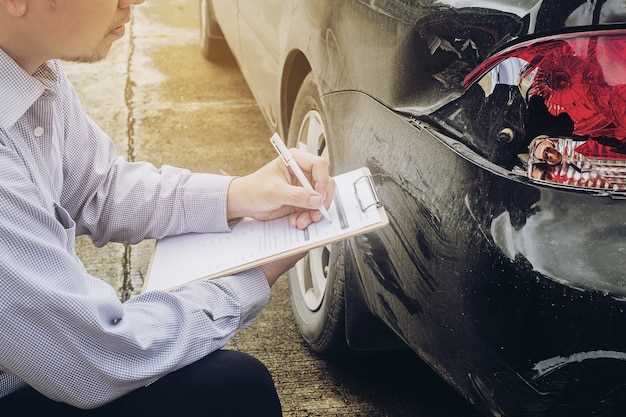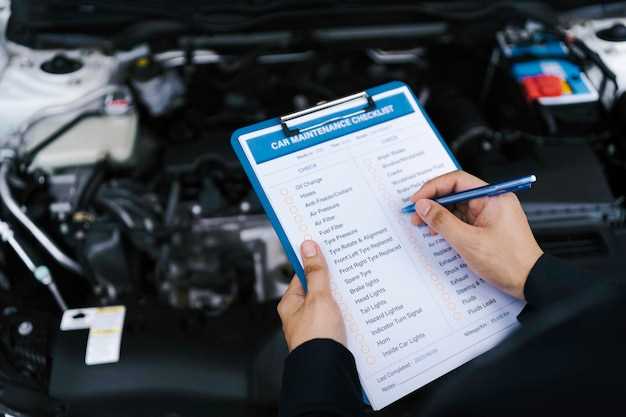Checklist for test driving a used car


When it comes to purchasing a used car, a thorough test drive is a crucial step that can significantly influence your buying decision. A well-structured checklist can help you make the most of your time on the road, allowing you to evaluate the vehicle’s performance, comfort, and overall condition. This checklist will guide you through essential aspects to consider while testing the car, ensuring that no detail is overlooked.
Before you hit the road, it’s vital to create a comprehensive list of items to assess during your test drive. This list should include various factors such as acceleration, braking, steering response, and cabin functionality. Additionally, pay close attention to any unusual noises or vibrations that may indicate underlying issues. Understanding how the car performs under different driving conditions will provide you with valuable insights.
Ultimately, the test drive is not just about driving the car; it’s about making an informed decision based on your firsthand experience. By following a detailed checklist, you can ensure that the vehicle meets your expectations and fits your lifestyle, reducing the risk of costly surprises after the purchase.
Key Components to Examine During a Road Test

When conducting a road test on a used car, it is essential to perform a thorough inspection of several key components to ensure that the vehicle operates smoothly and meets your expectations. Start by checking the engine performance. Listen for unusual noises and observe how the engine accelerates and responds to the accelerator pedal. A well-functioning engine should provide a seamless driving experience without any sputtering or hesitation.
Next, focus on the brakes. Test the brake responsiveness by applying the brakes gently at various speeds. The car should stop smoothly without pulling to one side or experiencing any grinding noises. Pay attention to the brake pedal feel; it should not be spongy or require excessive force to engage.
Steering and suspension are also critical. Evaluate the steering responsiveness by making sharp turns and maintaining a straight line on the road. The steering wheel should feel stable and not exhibit any vibrations. Additionally, assess the suspension by driving over bumps and observing how the car handles; it should absorb impacts without excessive bouncing or instability.
Don’t forget to check the transmission. Shift through all gears, including reverse, and monitor for any slipping or jumping. Smooth transitions between gears are a good sign of a healthy transmission system.
Lastly, inspect the vehicle’s alignment and tire condition during the road test. The car should track straight without requiring constant corrections to the steering. Uneven tire wear or vibrations can indicate alignment issues that may need addressing.
In conclusion, a comprehensive inspection during a road test will help you identify potential problems and ensure that the used car you are considering is worth your investment.
Checklist for Inspecting the Vehicle Before the Test Drive
Before embarking on a test drive, it is crucial to conduct a thorough inspection of the vehicle to ensure its condition meets your expectations. Start by examining the exterior for any signs of damage. Look for dents, scratches, or rust that may indicate poor maintenance or an accident history.
Next, inspect the tires for even wear and adequate tread depth. Uneven tire wear could suggest alignment issues, which may affect the vehicle’s handling on the road. Check the brakes by looking at the brake pads and discs, as worn brakes can lead to safety problems during your test drive.
Open the hood to inspect the engine compartment for leaks, corrosion, and overall cleanliness. A well-maintained engine is key to reliability. Check fluid levels, including oil, coolant, and brake fluid, making sure they are within acceptable ranges.
Examine the interior for functionality and comfort. Test all controls, including the air conditioning, heating, and infotainment system. Ensure that the seats adjust properly and that there are no unusual odors, which might indicate hidden issues.
Finally, review the vehicle’s documentation. Request the maintenance history and ownership records to verify that the vehicle has been kept in good condition. This step can provide insights into potential future problems you might encounter on the road.
Questions to Ask the Seller After the Test Drive

After completing your test drive, it’s crucial to gather as much information as possible about the used car. Here’s a list of important questions to ask the seller during your inspection:
1. What is the vehicle’s maintenance history? Understanding past maintenance can give you insight into any recurring issues and the overall care the car has received.
2. Has the car been in any accidents? Knowing whether the vehicle has been involved in accidents can help you assess its structural integrity and potential hidden damages.
3. Are there any existing warranties or service contracts? Inquire about any warranties that might still apply, as they can provide you with added peace of mind regarding future repairs.
4. Why are you selling the car? The seller’s motivation can provide important context; a straightforward reason could suggest a trustworthy seller.
5. What is the mileage on the vehicle? Confirming the odometer reading is vital, as it can influence the car’s value and longevity.
6. Can I see the title and registration? Ensure that the seller has valid documentation, proving ownership and the absence of any liens.
7. Have there been any recent repairs or modifications? Understanding any changes made to the car can help you evaluate its current state and reliability.
8. What fuel type does the vehicle require? Knowing the fuel requirements can sometimes impact your overall operating costs.
9. Is there a return policy or guarantee? Inquire if there’s an option for a return or satisfaction guarantee in case the car doesn’t meet your expectations after further inspection.
10. Can I take the car to my mechanic for an independent inspection? A trustworthy seller should agree to let you have the vehicle evaluated by a professional, providing further assurance of its condition.
Gathering answers to these questions will help you make an informed decision and ensure that the used car meets your expectations before committing to a purchase.



